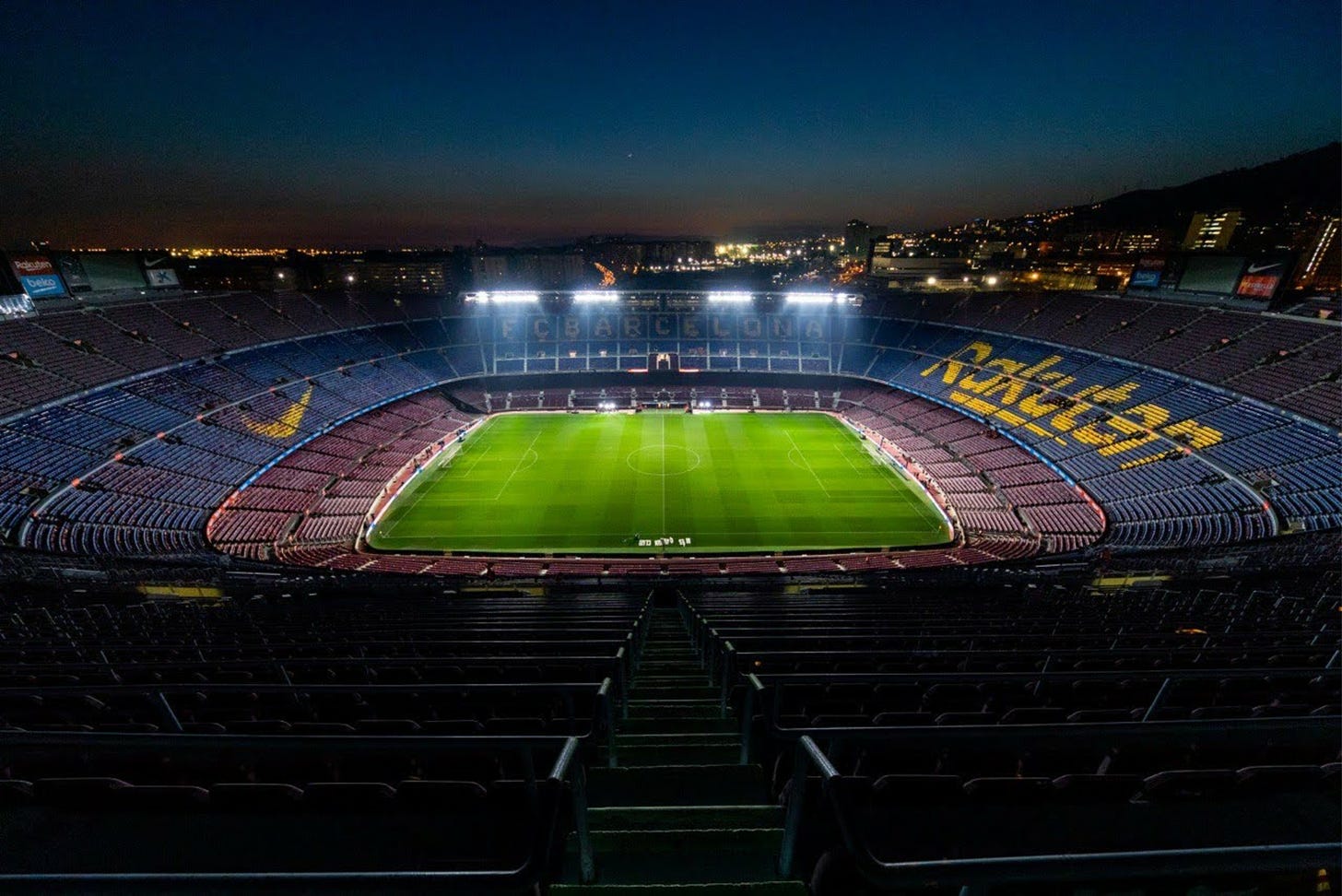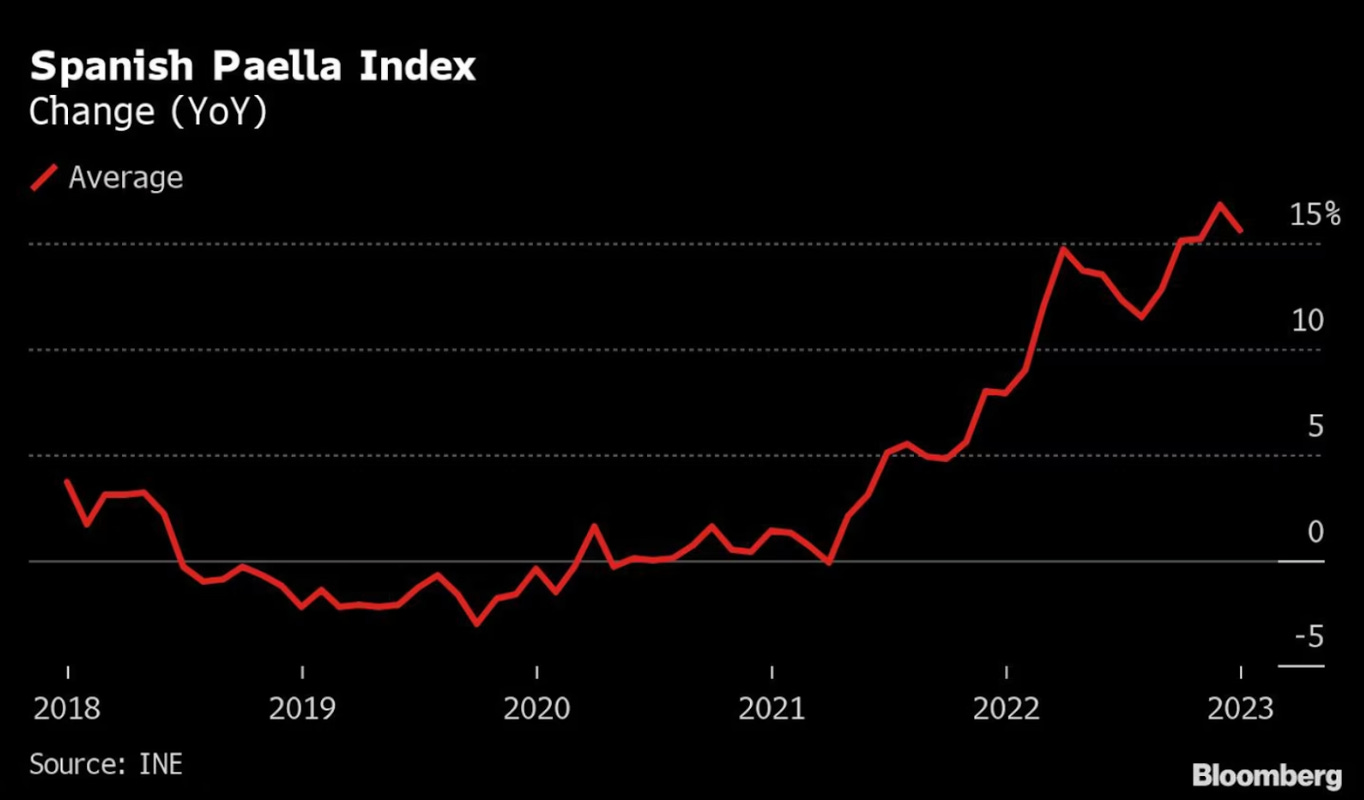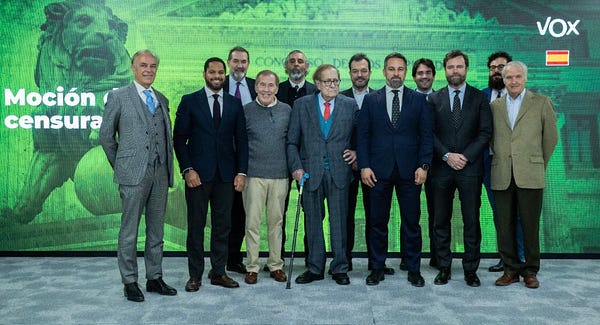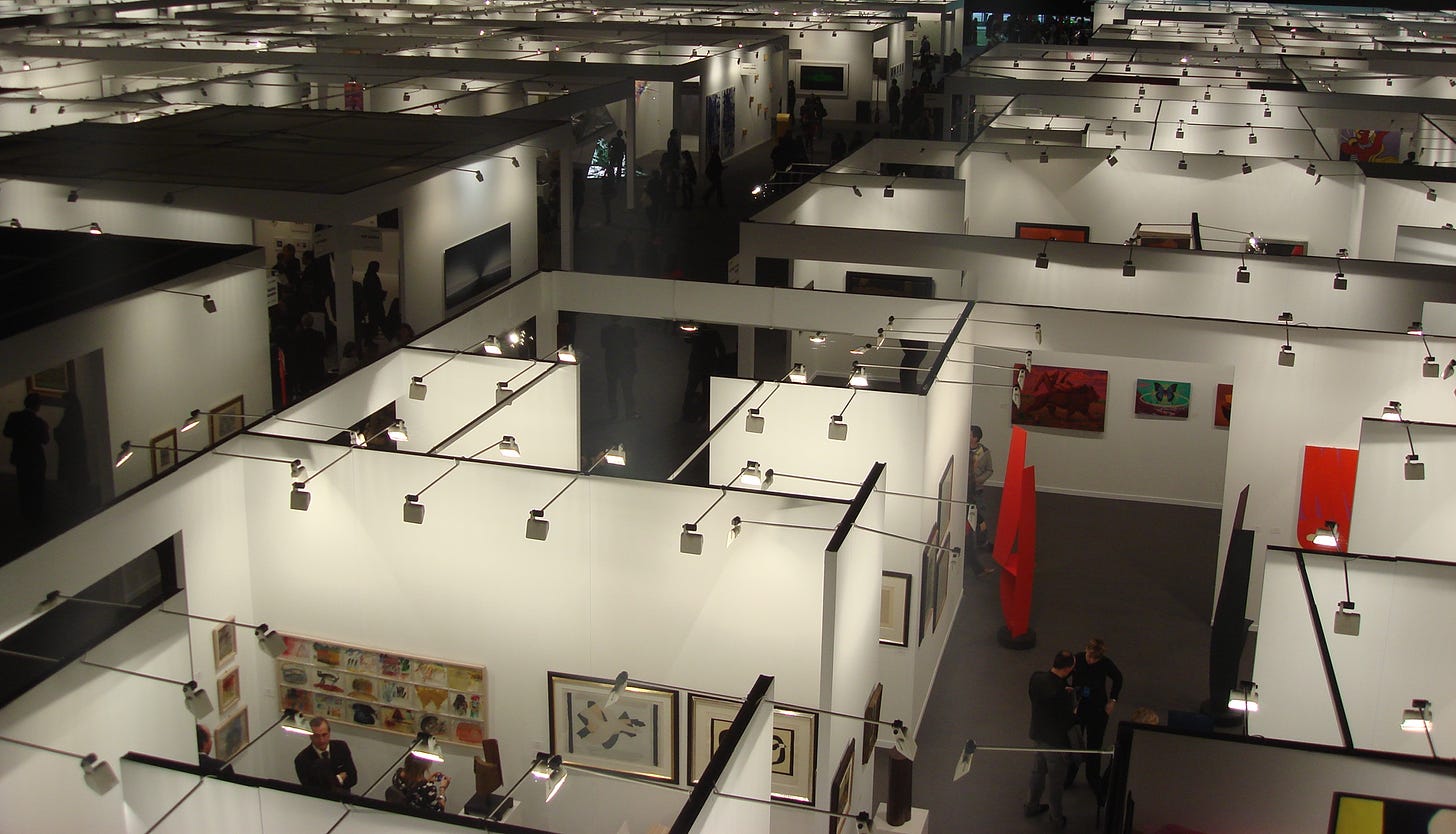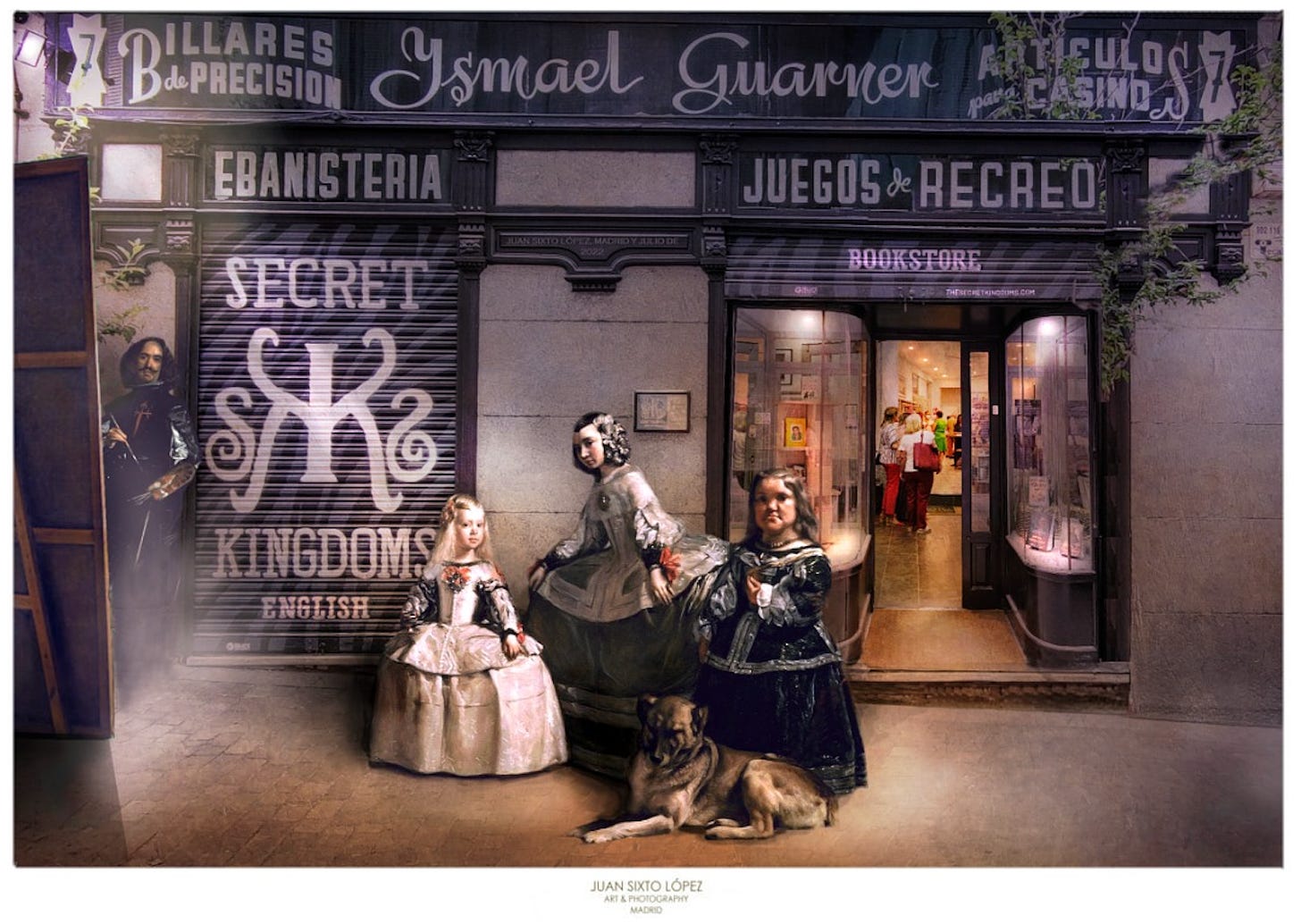February 23rd, Madrid
🎉 Welcome to the second (beta) issue of Tapa, a newsletter about all things Spain!
👨🏻💻👨🏻💻 Tapa is an English-language, weekly newsletter created by journalists Ian Mount and Adrian Bono (our bios are at the bottom).
🇪🇸 Our goal is to help you understand what’s happening in Spain. If you don’t have time to follow the news, you struggle with Spanish or simply love explainers, then this is the newsletter for you.
🌎 We cover the serious stuff (politics, economy and social issues) and the trivial stuff (lifestyle, social media, and memes).
🕒 We keep it short and simple. We value your time.
🧪 As we said last week, this is our beta version so expect some things to change as we continue to listen to your feedback.
Alright, let’s do this.
🚇 1. Have you put on some weight?
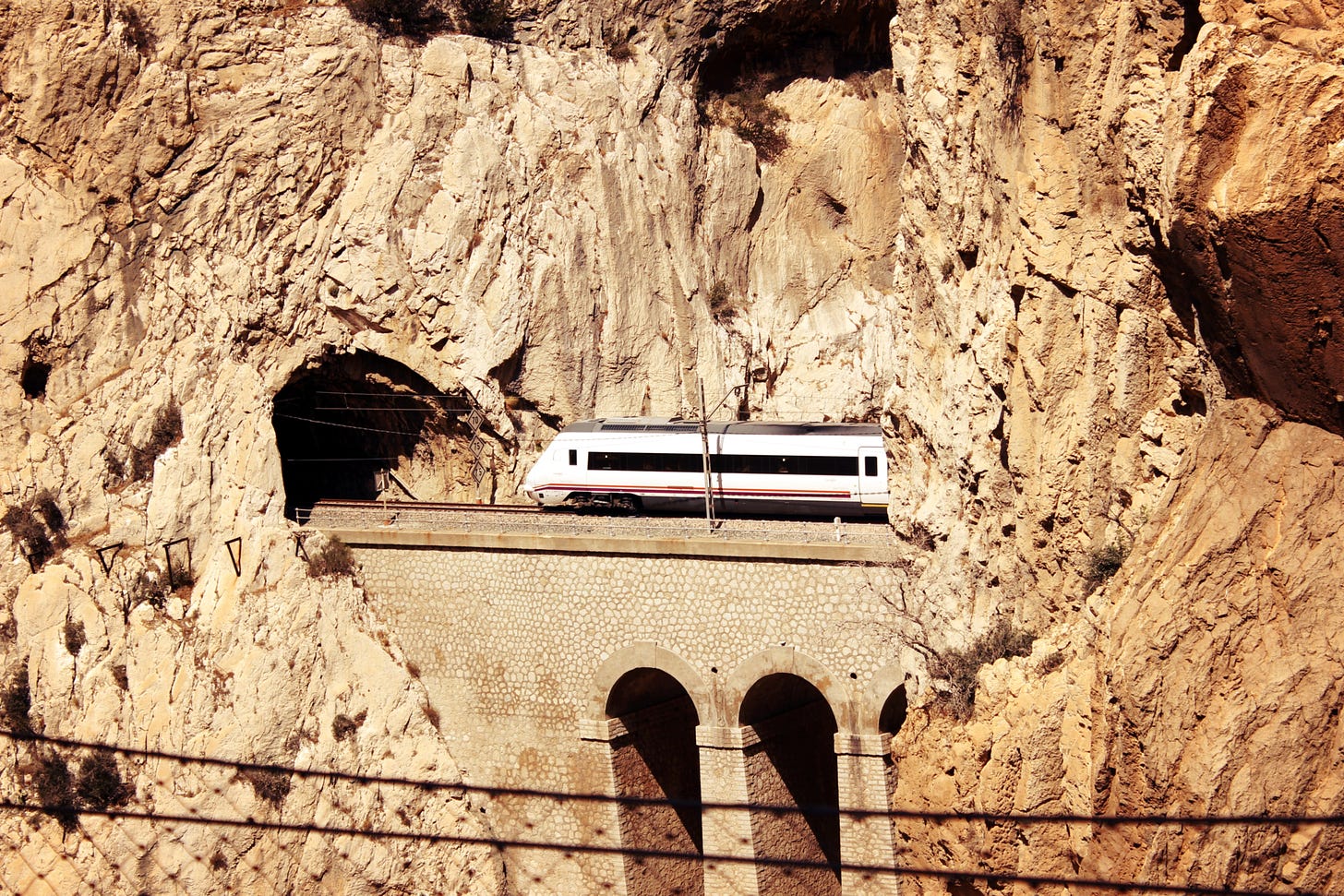
The president of state rail operator Renfe, Isaías Táboas, and the secretary of state for transport, Isabel Pardo de Veras, resigned from their posts Monday over the purchase of trains for Northern Spain that were, it turns out, too wide to fit through the tunnels in Cantabria and Asturias.
The trains were originally to be delivered in 2024, but this mistake will likely cause a two-year delay.
You’d think the measurements might have been checked in advance. The scandal exploded last month after a news report revealed that the train dimensions specified in the bidding, which was won by Basque firm CAF back in 2020 for €258 million, were inaccurate.
Heads had to roll. To make matters worse, media reports indicated that both Táboas and Pardo had been notified of the error in 2021 and kept silent about it, infuriating regional leaders for fairly obvious reasons.
Cantabria president Miguel Ángel Revilla called it a “botched job” and said that “someone has to pay for this,” and before a meeting with Spain’s Minister of Transport Raquel Sánchez Jiménez, Asturia’s much-displeased president Adrián Barbón asked to “purge” those responsible.
The Minister’s head was spared, however, because, according to official sources, she only found out about it last January, when the mistake was made public.
It is an election year after all, so the Ministry of Transport has already ordered the redesign and manufacture of new trains based on the dimensions of those currently in the rail network (which will fit through the tunnels 😃).
Here’s a booby prize: Word is that the temporary free multi-journey train ticket scheme put in place last year to fight inflation would be extended in Cantabria and Asturias until 2026.
⚽️ 2. Paying the ref is never a good look
FC Barcelona paid €6.7m to a business owned by the VP of Spain’s football referees committee, José María Enríquez Negreira. But what for?
José María and his son Javier both said they gave Barça reports about the tics, style and behavior of the referees who would oversee their upcoming games, but that’s about all they agree on.
José María said the reports were oral, simple counseling to “ensure no decisions were made against [Barça]” during matches and that the team received “neutral” treatment. The son Javier said no, they were detailed written reports, along with DVDs of the refs, starting in 2001.
But €6.7m for reports? That’s where things get sticky. El Mundo, which admittedly has a, um, slight Madrid bias, noted that in one period from 2016-2018, no penalty shots were called against Barcelona for 746 days, implying that the payments had an effect on the refereeing.
Then it got nasty. This week, Javier Tebas, the president of the Spanish football league (La Liga) said that, “the damage that is being done to professional football is great. This must be investigated to the end,” and added that if Barça team president Joan Laporta “doesn’t explain it well, he should resign.”
The rest of the teams weren’t happy either. The whole league, with the exception of Real Madrid and (surprise!) FC Barcelona, wrote a letter “rejecting and repudiating” what had happened and promising they were “actively working to clarify any irregularities that may have occurred.”
‘Caso Negreira’ is now in the hands of the prosecutor’s office. But at least one of the players is trying to leave it behind—the elder Negreira himself. His lawyer has presented a medical report that he has the early stages of Alzheimers, which might get him out of testifying—and criminal responsibility.
💸 3. These aren’t the prices you’re looking for
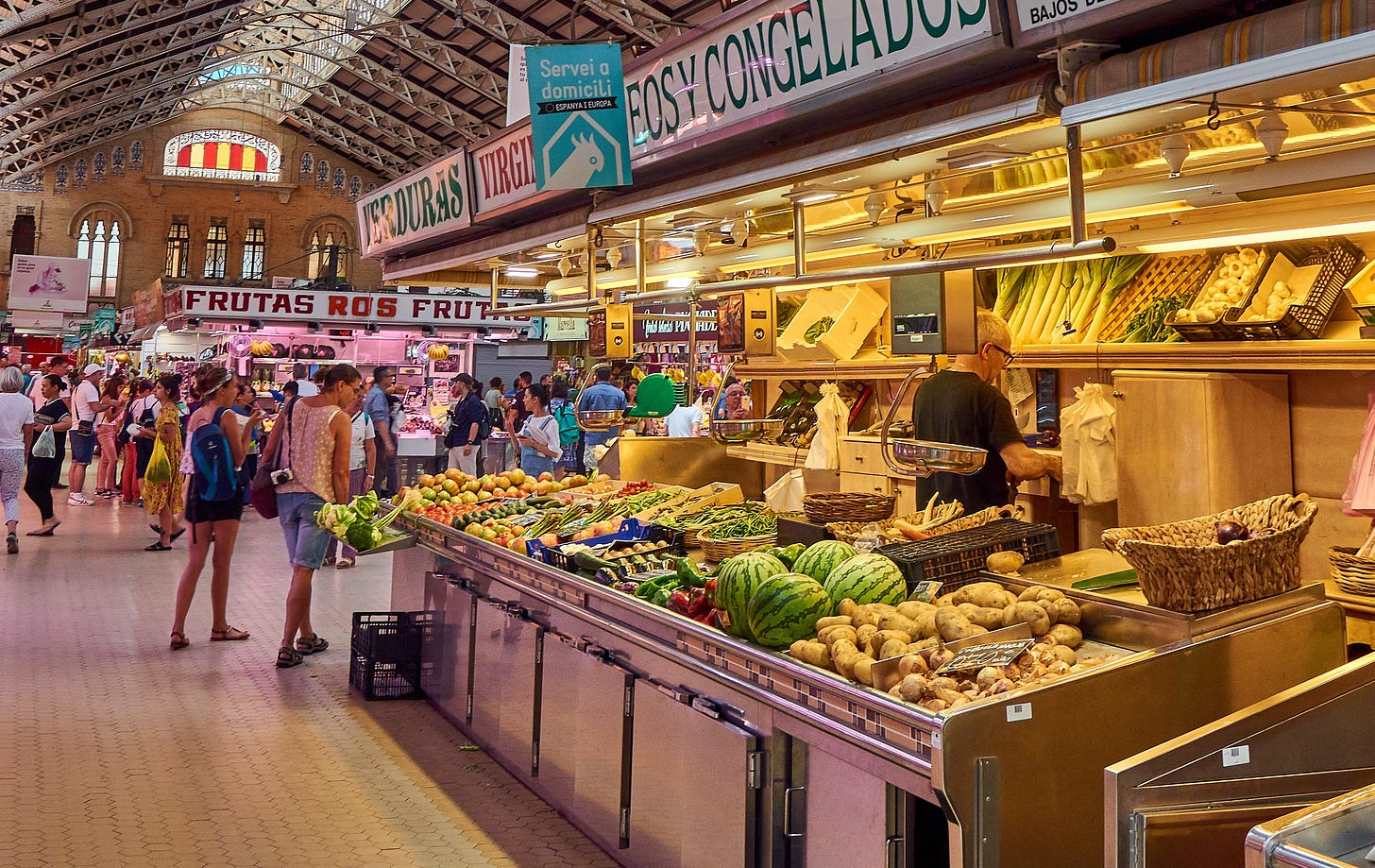
Inflation has entered a tricky phase for the Spanish government. While the published top-line numbers have gone down (from 10.8% in July to 5.9% in January), the drop isn’t passing through to where it affects people the most—in the supermarket, where cuts to the IVA on basic foodstuffs don’t seem to have had much of an effect.
Ag Minister Luis Planas tried to calm the waters this week at a meeting of the Observatorio de la Cadena Alimentaria (you know, the food chain), where he said that food inflation had peaked and there was no need to cut IVA on meat and fish.
But people really do have a reason to complain. While tumbling energy prices have driven down the overall inflation numbers, core inflation (which strips out energy and food) has continued to rise, hitting a 36 year high of 7.5%. Even worse, inflation for food and non-alcoholic drinks was 15.4% in January, just off the historic peak of 15.7% it hit in December.
Don’t take our word for it. Here’s Bloomberg’s handy paella index, which tracks the cost of ingredients. (Hint: prices are up.)
💬 Five things people will be talking about at dinner parties this week:
1. No more airport security 🛫
Well, that’s a mild exaggeration. But there is good news for those who ask, “Do you really think I’m carrying a toothpaste bomb?”
Spanish airport authorities confirmed this week that starting in 2024 passengers will no longer have to take their laptops and iPads out of their luggage. Not only that, but the 100ml liquid container limit will be lifted, meaning that you will no longer have to shed a tear every time you are forced to throw away your perfumes.
The first two airports that will see the rule change will be Madrid-Barajas and Barcelona-El Prat. The third one will be the Palma de Mallorca airport in late 2024, which makes sense considering the twisted amount of traffic that it sees each year (stay away from it in August—it’s a nightmare 👻).
2. We hardly knew you, Paul Married
PP leader Pablo Casado (Paul Married, get it?) announced a year ago this week that he would be resigning his job as party boss after being caught in an attempt to sully the reputation of a fellow PP leader and erstwhile bestie, Madrid regional president Isabel Ayuso.
Casado and Ayuso had been friends and Casado had backed her for Madrid presidenta, but then she got too big for her britches (from Casado’s POV) and pushed for more party power.
Casado and his #2 Teodoro García Egea launched an internal investigation into whether Ayuso’s brother had overcharged for the importation of masks during COVID-19.
It was like so hush hush. They were so... quiet about it. Their “investigation” came out and Casado publicly expressed doubts about Ayuso’s bro, but they couldn’t prove anything criminal. And, like that, other PP leaders left him and he was gone, never to be heard from again.
3. Can’t see the metro for the trees
Another week, another protest against Madrid presidenta Ayuso. This time, close to 2,000 people gathered in the Madrid Río area in defense of over 1,000 trees that the Community of Madrid was planning to cut down to make way for the expansion of the Metro 11 line.
The Ayuso administration quickly backed down and announced it would temporarily suspend the move, blaming the problems on “various technical issues” that had forced it to move the proposed station “a few meters”. Changes would be coming after conducting further studies on the trees, it said. But what changes were not clear.
Protesters, however, are not backing down and insist that they don’t want the metro line to run through the park at all.
4. Olona comes back with a (semi) vengeance
Macarena Olona was far-right Vox’s pick to run for regional president in the Andalusian regional elections last June. She lost—not helped by the fact that she had a hard time proving she had ties to the region.
Only a few days later, she announced she was quitting politics due to “health issues”. But there was always a feeling that something else was going on, and maybe the ex-darling of the far-right was not getting along with Vox leaders.
Olona has kept mostly silent since then—until she hit back at Vox last Sunday in a mano-a-mano interview with La Sexta journalist Jordi Évole. She offered vengeful and incendiary statements that suggested that she’d just discovered the rightward, man-heavy lean of her party, and had dodged to the center—which drove the Twitterati crazy.
“There is people within Vox,” she said, “who of course, consider that homosexuality is a disease.”
Upping it a notch—and really, confusing everything, she added that, “One leader commented that he tried to ensure that there were no women in leadership so there was no temptation."
To whit, she noted a few days later…
5. Oh, you mean that flag…
Miriam Nogueras, the parliament spokesperson for the Junts Catalan pro-independence party, caused a stir on Tuesday after moving the Spanish flag away from a lectern where she was about to give a press conference, so it wouldn’t appear in TV images.
Once she started taking questions from reporters, Nogueras explained that she moved the flag because “it was too close”. However, when asked about the European flag to her immediate right, she responded: “This one is not that close… and it also looks really cool”. Then she added...
“This [European] flag represents me a lot more than this [Spanish] flag.”
Opposition leaders, especially in the center-right PP and far-right Vox, were not amused, and some called for her to be sanctioned (for what exactly was not clear). The PP of Madrid snidely noted that while the flag might not represent her, she was perfecting happy collecting her €118k parliamentary salary from the state.

🥂 Bonus Round: 5 Things to Do in Spain This Weekend
If you’re a fan of art, this weekend is going to feel like Christmas. And a warning: you may try to see it all and do it all, but chances are you won’t succeed. Don’t say we didn’t warn you.
ARCO Madrid 2023: This is the big one. Spain’s International Contemporary Art Fair is back for its 42nd edition with a total 211 art galleries from 36 countries participating. This year’s program is titled “The Mediterranean: A Round Sea” and will “hinge on the art scenes of the countries surrounding this sea”. Arguably Spain’s biggest annual art event, ARCO is also great for celebrity spotting, if you’re into that, that is. Until Feb. 26. General admission is 20€.
JUSTMAD: ARCO’s little bro (in a sense), this art fair is dedicated to discovering new artists and galleries, especially those who will lead the scene in the immediate future. In its 14th edition, JUSTMAD introduces contemporary art lovers to 40 national and international galleries. If ARCO is too far away for you, then don’t miss this one. Feb. 23 to 26. Tickets are 10€ to 15€.
Art Madrid 2023: Starting to see a pattern this weekend? Yes, this is also a contemporary art fair. Art Madrid features national and international art galleries dedicated to contemporary and emerging art. On top of that, it’s inside the Palacio de Cibeles, so you can always climb to the rooftop for a glass of wine when you’re done. Until Feb. 26. Tickets are 15€.
Wine Up Comedy: Imagine a stand up comedy act about drinking. Now imagine you get to drink during the show. That’s the idea behind Wine Up Comedy, a “wine and monologue experience” hosted by actress and comedian Sheila Gonzalez that is, yes, both a stand up act and a wine tasting, all in one. Sunday, Feb. 26 at 1 p.m. (Danger: day drinking). 25€.
City and Science Biennial: The 3rd edition of the City and Science Biennial, which combines art, science and technology, comes to Madrid and Barcelona, this year focusing on the “how” of living—on the planet, in the city, and with others. Until Feb. 26.
🔔 A Message From Our Sponsor
Secret Kingdoms is your English bookstore in Madrid. It specializes in Spanish history and literature, contemporary and classic novels, books for children and young adults of all ages, history and historical fiction, thrillers, science fiction, fantasy, poetry, biographies and much more.
Located on Calle de Moratín 7 — a few blocks away from the Prado Museum — and with over 20,000 new and used books, Secret Kingdoms has something for everyone.
Find out more at www.thesecretkingdoms.com
🙏 Before you go, please remember to share this newsletter with your friends on social media. The more we grow, the more information we’ll be able to offer each week.
We’ll be back next week with more.
👥 About the authors
Ian Mount
Ian Mount is a Madrid-based writer, editor and journalist who has written about politics, business, economics, sports—and wine—in the U.S., Argentina and Spain for more than two decades.
Ian’s news stories and features have appeared in print and on radio at the Financial Times, the New York Times, NewYorker.com, Bloomberg Businessweek, New York, Fortune.com, The World, Marketplace and many other outlets.
His book The Vineyard at the End of the World: Maverick Winemakers and the Rebirth of Malbec (W.W. Norton, 2012), was chosen by JPMorgan Private Bank for its annual summer reading list (aka the “Billionaire Book Club”).
Ian has run three sub 3:10 marathons and would really like to break the three-hour barrier but is coming to admit that, with the passage of time, this is looking increasingly unlikely.
Ian is on Twitter at @IanMount
Adrian Bono
Adrian Bono is a multimedia journalist and media consultant who has been covering politics and pop culture in the US, Latin America and Europe for over a decade.
His opinion has been featured in the BBC, NPR, Al Jazeera and Univision, and he has appeared as a contributor on The Guardian, Monocle and Business Insider.
He has worked for influential publications such as Infobae and the Buenos Aires Herald and has been invited to speak on the future of journalism and the rise of disinformation in Latin America, the United States and Europe.
He has a Bachelor’s Degree in Social Sciences and Humanities from Universidad de Palermo (Argentina) and a Master’s Degree in Fact-checking, Digital Verification and Data Journalism from Universidad CEU San Pablo (Spain). He is based in Madrid.
Adrian is on Twitter at @AdrianBono





